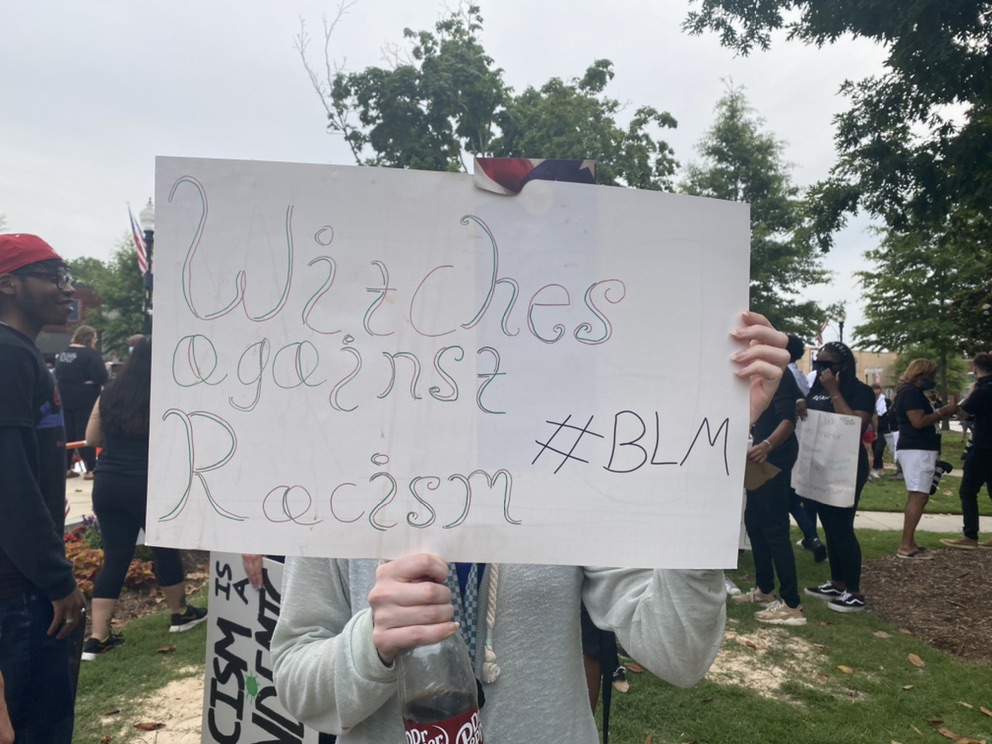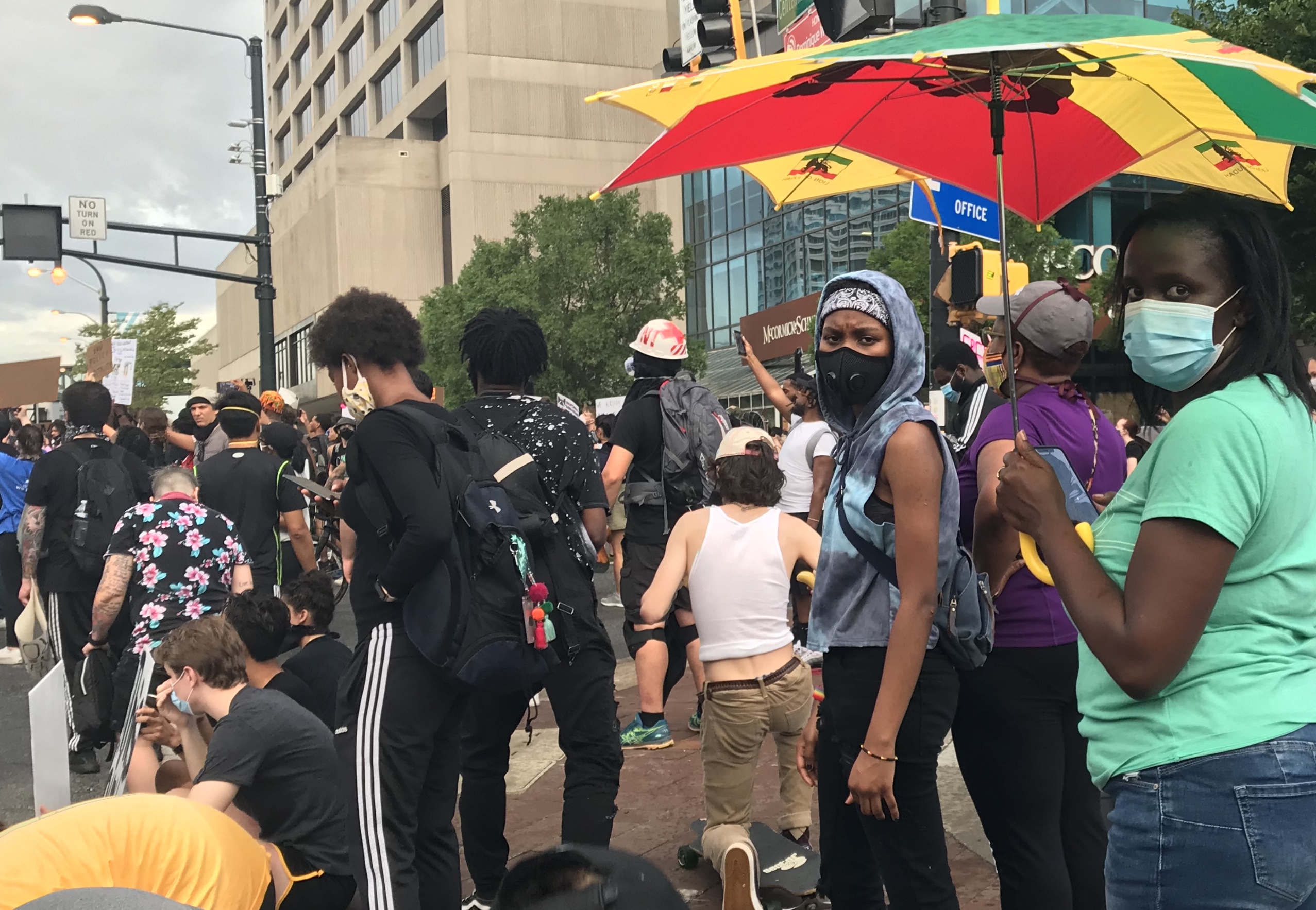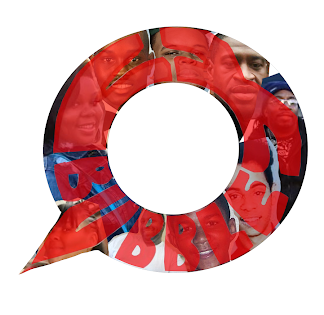By Tibria J. Brown and Zariah Taylor, VOX ATL teen staff
We live in a world where teen voices are often the ones that don’t get to be heard. Teenagers are opinionated, especially pertaining to the topics that will influence their generation the most.
Introducing VOX BUBBLE, VOX ATL’s newest series in which VOX ATL’s teen staff members give you their bite-sized, unadulterated opinions about society, politics, and pop culture. Taken straight from the VOX ATL GroupMe group chat, VOX BUBBLE is meant to be conversational in tone, and gives an easy-to-consume look at what Atlanta teens think about big issues in America. This week, VOX teens who have attended protests over the last week discuss what the protests meant to them.
Large protests have erupted across the country in response to the death of George Floyd. Floyd’s death, as well as the unlawful death of other innocent African Americans, including Brianna Taylor and Ahmaud Arbery. All of this is in conjunction with the way the global pandemic and increasing unemployment rates are impacting African-Americans more than other groups has ignited a national flame of frustration and fueled the protests.
Demonstrators have taken their anger to the streets, crying out for equality and an end to police brutality, as well as the prosecution and conviction of the four officers responsible for Floyd’s death. The protests have sparked conversation and controversy. However, many might not realize that the protests have been led or attended by the teens and young adults from Gen Y (Millennials) and Gen Z. Gen Z, especially, are growing up witnessing protests and police brutality, making a powerful impact as they are now choosing to take their voices to the streets.
We caught up with a few VOX ATL teens who attended protests this past week. Here is what they had to say about their experiences.

- “I went to the march on June 4 because I was tired of watching protests live on YouTube. Since it was the same day as George Floyd’s funeral, my brother and I figured the memorial would be safer than the fury we’d seen across the country in the past days. It was my niece’s first protest as well, something I know was deeply meaningful for her. I never imagined my niece and I would be kneeling in the streets together singing the black national anthem, among thousands of other activists. It definitely put the future into perspective for me—if by some point in my niece’s lifetime we no longer have to fight for equal rights, it’ll all be worth it.” –Adam Dickerson: March from King Center, Auburn Avenue to the Capitol Building, June 4
- “I’ve been wanting to attend the protests for a while now because they force the media, the people in the community around you, and the people in office to pay attention by physically showing up and demanding for change. My parents wouldn’t let me go downtown because they thought it was too unsafe, so I looked into protests near me and found out about an organized protest in Covington Square that happened on June 6. The protest was organized by a group of high school graduates and everything was planned out to be, and ended up being executed completely peacefully (no heavy police presence either). Aside from the usual marching and chanting that’s been seen at all protests, the crowd collectively sang Happy Birthday for Breonna Taylor and laid down for nine minutes in remembrance of George Floyd. There was also a huge push for people to get politically involved with tents set up where people could register to vote. Some local politicians came out to speak, and a call to action at the end for everyone who attended to go online and sign a petition that advocated for the removal of the confederate statue in the middle of the area we were protesting in. While the local protests I’ve attended may not be capturing the eye of national news, I still find them to be critical in the fight against systemic racism. Police brutality is a problem that has dangerous repercussions whether you’re in a big city, the suburbs, or even more rural areas.” – Emma MacDonald: Covington Square. June 6.

- “I attended the protest because George Floyd’s murder infuriated me. After seeing another police killing toward a black man, I was finally fed up. When I saw George Floyd’s death, I realized that yet another cop would get away with murder. I had to be at the protest to show my support, and show that this fight will not end any time soon. When my family and I got to Atlanta, we immediately saw military vehicles and police lining the streets. Protesters were dancing with [national guardsmen] and officers. People were giving away free food and water to protesters. I even saw civilian medics walking around offering to help others. We knelt and stayed there for eight minutes and 46 seconds. (The number represents the time it took for the officer to take George Floyd’s life while kneeling on his neck.) As we finished kneeling, the allotted time for the protest had ended and curfew was about to be enacted. Anxiety clogged the air as people started to disburse. I woke up the next day to videos and images on social media of what protesters experienced that night after we left. Many were sprayed with tear gas and attacked with batons. The same officers that danced and laughed with us attacked people mercilessly. I’m outraged.” – Tibria “Bria” Brown: ATL protest Friday, June 4.

- “At the march, it was an amazing feeling knowing that my action is helping stop police brutality and save the lives of black people all over this world. The walk was long and it was very hot outside, especially in a mask but it was totally worth it. It was also amazing seeing so many people opening up their homes and using their resources to help and support the protesters. This experience was life-changing and I hope that change will come from our protesting.” – Jennie Matos

- “When I went to the Decatur protest, it didn’t seem very promising at first. The square was populated but not so full that we couldn’t social distance. There was an air of confusion. No one knew who had arranged it, nor did anyone know what exactly we were supposed to be doing. After about 10 minutes of confused silence, someone finally approached the mic, and you could see that she had been crying. She told us that she was a student at Georgia State, a mother, and that she never expected this turnout. After a few other speeches, she led us in a march all around Decatur. As we got to the end of the march, walking up North McDonough Street, I turned around to see a street filled with thousands of protesters. The crowd had grown to a size that took my breath away. When I thought back to the organizer of the protest and I saw the crowd of people behind me, I couldn’t help but feel powerful. At that moment, it felt like there was change going on. I don’t know what will come of the protests or what the administration plans to do to take down the corrupt system we live in today. But after having seen people rally together, you can’t help but have a little bit of hope.” – Defne Tanyildiz: Decatur protest, June 3.





